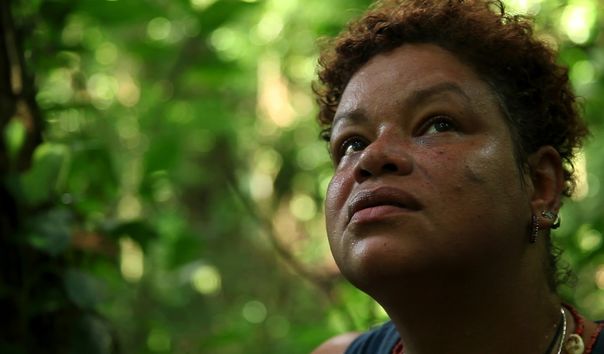History (un)defined
Ricardo Vieira Lisboa

A camera films another camera; a tremulous voice; a tear trickling down the face; “people need to wake up”; a photograph slowly appears, submerged in liquid developer; a slow narration.
Gilda Brasileiro – Contra o Esquecimento: two filmmakers, four films, one for each hand. First of all, this is film-portrait of Gilda, a woman who investigates the slave-owning heritage of her city, Salesópolis. Then, an investigative film, about the documents, about the ruins of the human trading posts, about the testimonies of the elders who lived through the last remnants of this horror. But also, a meta-film, about the filmmaking process, of going through the woods with a camera in hand and confronting the mercenaries’ descendants in their comfortable mythologies. And at last, a photo-film-essay, made from negatives from the late 19th century where images advertising the coffee growing culture bear witness to a certain reality (Didi-Huberman will be pleased).
This is a film that multiplies itself into visual solutions, to the point that they become counterproductive. Still, despite the convulsions that disarray the documentary’s flow, Gilda's solemnity remains, the cigarette between her lips, looking at the green. And, of course, a disarming smile found in the confines of oblivion. This is what the film does best, connecting the photographic documents’ physical existence to their actual contents. The filmmakers start from a set of photographs where the various steps of coffee production are depicted and they discover in them evidence of slave and child labor. But these negatives arise in a confrontation with the (un)defined image, made (un)defined by history itself: the pointillism of jet printing versus the brilliant definition of daguerreotypes. Because through the act of revealing the photographs, digitizing them and investigating their secrets, the filmmakers end up reflecting on Gilda’s process, who discovers, clarifies and re-defines the past.

